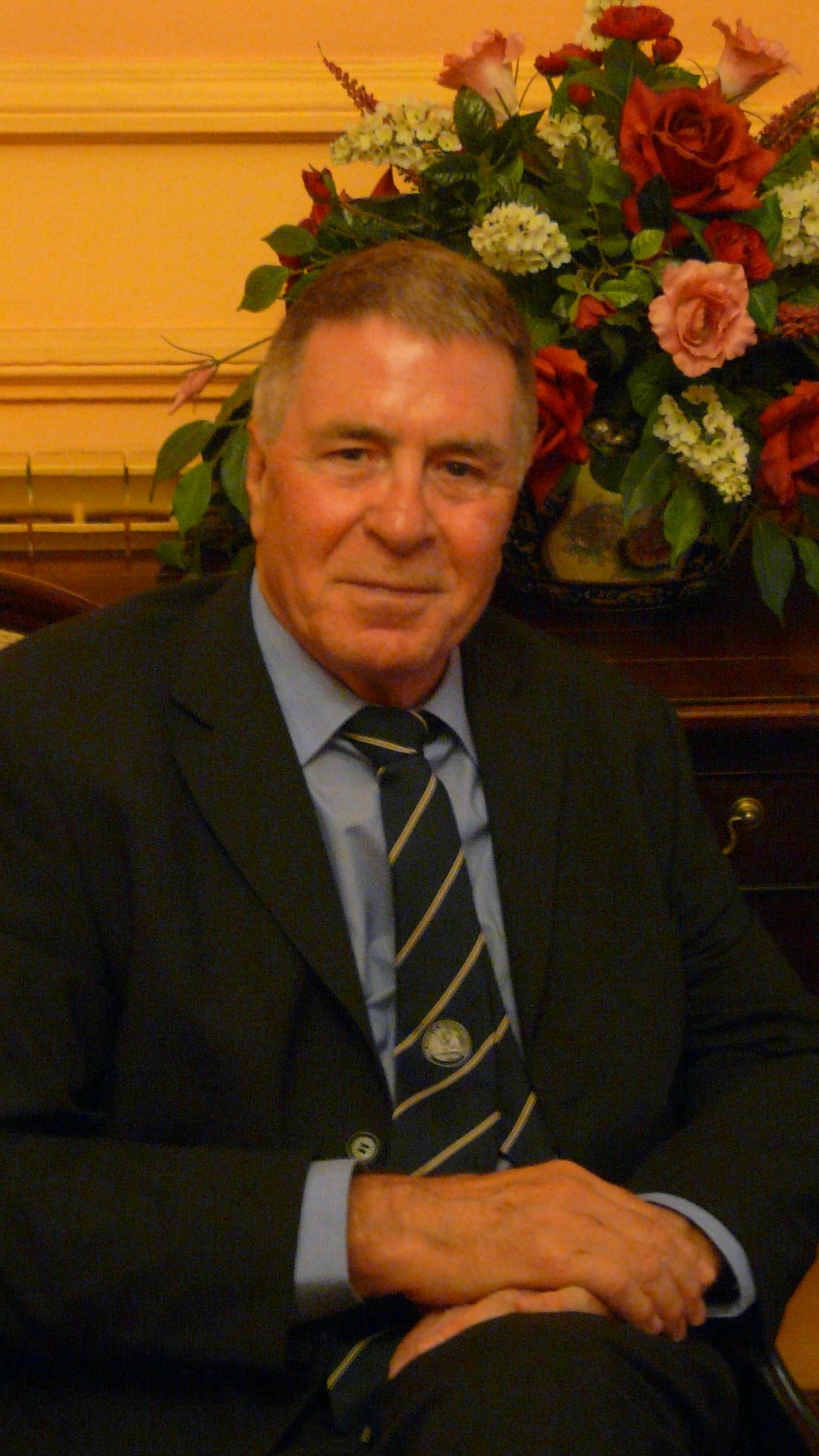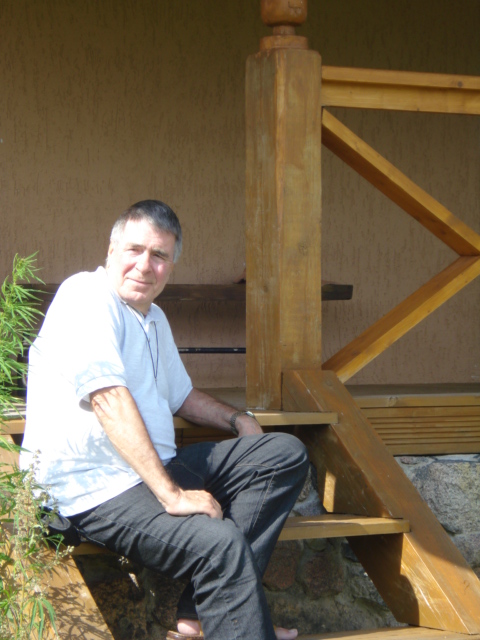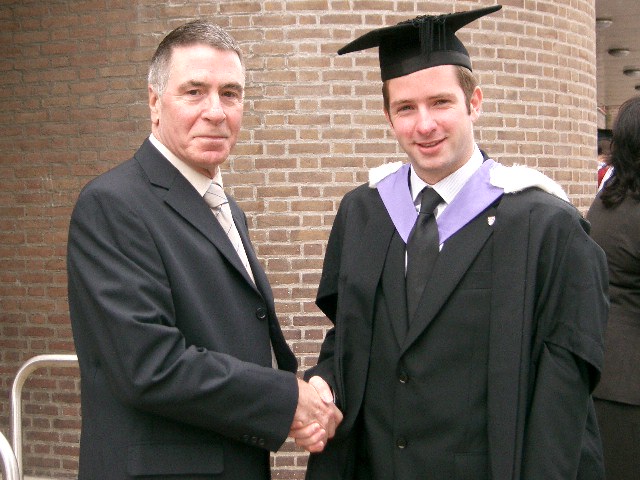A TALE OF THREE NEWSPAPERS
Thursday, January 16, 2014

A TALE OF THREE NEWSPAPERS
Mike Walsh
The cynic would have it that a journalist is a person who scribbles on the back of advertisements. That may be so but what they write will be published only if it stays within a set of rules.
Writing for media in three parts of our much troubled world gives insight into wildly differing codes of news reporting. I write and broadcast for U.S. media. Whatever criticisms I have of the U.S. it must be read (sic) that they do value freedom of expression.
As I pull the microphone towards me I know I can say more or less whatever comes to my politically incorrect mind. However, to voice the same opinions on German, French or UK radio would be reckless to say the least.
The right to Freedom of Expression is enshrined in the UN Charter but the high-minded mantra is not to be taken too seriously. Each country in the EU will abide by their own rules.
An elastic concept freedom of expression stretches further in some countries than it does in others. What is illegal in Germany or France is not regarded as contentious in Spain or Ireland. This is no doubt on account of their different histories and therefore sensitivities.
Eastern European media can be said to be black and white and red all over. Editors in former Soviet Bloc countries grow pale at the mere sight of Western Europe’s brash tabloids. They never push boundaries. If submitted content is likely to even mildly offend the establishment they don’t publish it; simples.
The Berlin Wall may well have come tumbling down but the post Soviet media mindset stands as straight as the honour guard at Lenin’s mausoleum.
Unlikely to be found in main media tabloids is humour, criticism of public figures, challenging columnists, off-beat fashion or anything that could be tainted by sensationalism. If celebrity gossip, rape, pillage, murder, scandal and mayhem float your boat then don’t go looking for it in the post-Soviet press. You will be disappointed.
Editors of Eastern European are gatekeepers and guardians of strait-laced conformity. Expect pages of press releases issued by various central and local government departments. There will be an abundance of political comment penned by po-faced intellectuals written in double-speak.
I imagine that the aim of most Western media editors is to engage with their readers. Unafraid of pushing boundaries I recall a Euro Weekly News editor inviting me to be challenging and unafraid of controversy. Had I been an Eastern European scribbler I would have been aghast at this suggestion. Count our blessings, Eastern European journalism is probably a generation removed from the editorial content of the UK’s tabloids.
The Western media for all its faults, and it has many, is perhaps the best compromise between license and political conformity.
keyboardcosmetics@gmail.com
 0
Like
Published at 1:47 PM Comments (0)
0
Like
Published at 1:47 PM Comments (0)
THE TRUE AGE OF ELEGANCE
Thursday, December 26, 2013

THE TRUE AGE OF ELEGANCE
Mike Walsh
Was there ever more elegance and style than when women wore fur stoles, veils and dress gloves. I am reminded of U.S. President Reagan’s wife Nancy Reagan when being received by the Pope. Wearing a veil this otherwise ordinary lady is transformed into an almost saintly figure.
Actress Sophia Loren expressed femininity as few can, especially when wearing a face veil or stole. Approaching her eightieth birthday she still adds to her allure by wearing a broad-brimmed hat and veil. So did countless other fashion icons such as Ingrid Bergman and Audrey Hepburn, the opera diva Maria Callas. Given these stars enigmatic beauty and presence can today’s fashion icons hold a candle to them?
Actresses and film stars, even at the beginning of their careers, could flaunt it immodestly. All that was necessary to turn heads and attract admiring glances was to toss a fur stole over their shoulders with a certain élan.
Pulling on filigree-laced elbow-length dress gloves underscored elegance and style. For added allure surely a fashionable hat and pretty face tantalisingly half hidden by a veil. This was at its most effective when decorously done as did Princess Diana.
Dress gloves showed real taste. Their being seductively pulled on or off exposed a man’s weakness for a woman’s slim hand and forearm. A real lady never removed her glove to shake a hand, men were obliged to. It put emphasis on the difference between the genders.
Shawls are another social matter. I never met a woman who wasn’t devoted to either her shawl or stole. Stoles were worn for style in high places whilst shawls were for those considered less fortunate. Popular in Spain too, flamenco artistes swirl a shawl with mesmerising effect.
Of course, the donning of such fashion accessories demanded confidence without which the gesture was rather pointless. Oh, they had plenty of that too.
I recall being a passenger in a New York yellow cab; I was a sixteen-year old sailor at the time. The lights changed and the world stopped for everyone in sight of her. Fascinated, we all watched a young woman, almost certainly a film star, as she crossed Fifth Avenue to approach Macy’s department store.
Dressed in what passes for fashion today she would not be an exceptional woman. Not on this occasion. She was taking Errol Flynn’s advice. Walk like you own the earth. For a few brief moments she did so.
With her sweet nose in the air and aware that all eyes were on her she flaunted her femininity as few can: Marylyn Monroe comes to mind. The image of her as she flamboyantly crossed that busy city avenue stayed with me all these years. The Beatles crossing Abbey Road could never match her panache.
NOTE: Those who find Mike’s Walsh columns of interest have easy access to several hundred of them. Go to Euro Weeks News online. Click ‘columnists’ then click ‘michael walsh.’
Michael Walsh. Quite_write@yahoo.co.uk
 0
Like
Published at 11:37 AM Comments (0)
0
Like
Published at 11:37 AM Comments (0)
THE AFTERLIFE IS IMMEDIATE
Thursday, December 19, 2013

THE AFTERLIFE IS IMMEDIATE
Mike Walsh
I have attended my fair share of funerals, services, graveside eulogies and visits to crematoria. Sombre occasions, tears are shed and thoughts shared with relatives we haven‘t seen for years. Funerals are best avoided, especially one’s own.
Eastern Europeans take death and its rituals far more seriously than do Westerners. When in Latvia I was invited to a graveside memorial service. From the four corners of the nation relatives travelled to a cemetery situated in the almost impenetrable forests on Lithuania’s borders.
An annual event, the emotional service was to commemorate family members who had passed on a long time ago. I presumed the placing of a few bouquets and brief prayers would be whispered. Duty done, we would be soon dearly departed too.
Not so fast. The graveside service with its acclamations was heart-wrenchingly long. Whilst twenty or so family members circled the graves a lone violinist played laments, prayers said and tributes were made.
When my Ukrainian wife’s mother, Liudmyila shrugged off her mortal coil I was quite unprepared for the raw emotions exposed. Passing on is no passing matter. For Russian Orthodox Christians there is a sequence of rituals following the death of a family member. The only cutting corners is in the internment. This takes place within 24 hours of a natural death.
A glass of water and bread is placed on the sideboard for the departed soul’s needs. On the day of the funeral the Orthodox priest with small choir arrives at the family home. Hymns accompany the service. The curious do not peer from windows, balconies or cross in front of the cortege. Donations are made to pay for the funeral bills.
In the family home all glass, mirrors and glass framed pictures are covered by white sheets. It is believed that the soul of the departed remains in the family home for nine days after which the coverings can be removed. The spirit then departs to Hades; weeks later be admitted to Paradise.
The morning following internment the family gathers around the grave to share breakfast. Whilst doing so the deceased will be implored to join them. Enjoy a glass of wine but no toasting each other.
For approximately 40 days, the period being determined by the priesthood, a monastic period of mourning will be expected. A church service of remembrance takes place on the fortieth day. This will be a substantial gathering, a sad occasion unlike that of Irish tradition. Many Celts see death as re-birth, therefore balance is drawn between woe and celebration. ‘I am no more afraid of death than I was of being born.’ Spartacus.
There is nothing mawkish about such rituals. If cynical or bemused by such traditional ritual I imagine our fellow Europeans are equally baffled by clinical quick-fix funerals and our get on with life approach to life after death.
NOTE: Those who find Mike’s Walsh columns of interest have easy access to several hundred of them. Go to Euro Weeks News online. Click ‘columnists’ then click ‘michael walsh.’
Michael Walsh. quite_write@yahoo.co.uk
 0
Like
Published at 11:59 AM Comments (0)
0
Like
Published at 11:59 AM Comments (0)
THE DARK SIDE OF THE ENGLISH CHANNEL
Wednesday, December 11, 2013

THE DARK SIDE OF THE ENGLISH CHANNEL
Mike Walsh
I have long suspected that Europeans and the British are far more than fish and chips apart. Are those who retire to Europe better Europeans than those we leave behind? Are we returning to our roots? Most of England’s people can trace their lineage back to European ancestors.
However, many keep their Anglo-Saxon roots firmly fixed in what was once Celtic soil. As far as mainland Europe is concerned there is an ‘us and them’ detachment about Little Englanders.
To them, Spain appears to be a holiday theme park along the lines of the other one in Florida. Most British visitors enjoy their holidays then add, ‘but I couldn’t live here.’
Was it ever thus? During Queen Victoria’s reign it was commonly thought that civilisation stopped at the English Channel. Any ill-fated person born on the far side of Dover’s lapping shoreline was regarded as ‘Johnny Foreigner.’ An oft repeated phrase was, ‘”He’s a foreigner, ‘eave ‘alf a brick at him.’
My Great Grandmother would be as familiar with the Napoleonic Wars as we are to World War Two. Legend has it that a monkey on board a passing French ship, for entertainment purposes dressed in military uniform, survived the ship’s sinking on England‘s east coast.
Soon afterwards Hartlepool’s alarmed citizenry discovered the shivering creature. These worthy folk had been forewarned about the diabolical intentions of the French. Having little desire to speak in such lingo the beachcombers decided the hapless monkey to be a French spy.
The doomed monkey was duly questioned and its fate decided. At the close of the improvised trial, the hapless creature was hanged from the cobble mast of a nearby fishing smack.
Such anti-European prejudice was set to continue. The beastly Germans, it was said, passed poisoned sweets to children during the Great War. Dachshund dogs were stoned and in 1939, the Press depicted the same breed of dog with swastikas crudely drawn on their backs.
Is mainstream media responsible for anti-Europeanism? On November 21 the worst imaginable human tragedy in northern Europe struck. Fifty-four shoppers were crushed to death when a Canadian designed, German built supermarket collapsed in Latvia’s capital. Riga is roughly the length of Britain away from England.
The indifference displayed by British media was grotesque, its disdain for all things European laid bare. It was day two before many papers reported the story. I first heard of the scale of the calamity on Face Book and Russian media.
A comparatively minor event in America, a storm, a mall shooting or unusual murder is given far greater coverage. The UK media hangs on every word stemming from Congress whilst Europe remains the dark side of the channel. Neither European nor American, has Britain lost its identity and if so where lies its future?
NOTE: Those who find Mike’s Walsh columns of interest have easy access to several hundred of them. Go to Euro Weeks News online. Click ‘columnists’ then click ‘michael walsh.’
Michael Walsh. email keyboardcosmetics@gmail.com
 2
Like
Published at 9:30 PM Comments (8)
2
Like
Published at 9:30 PM Comments (8)
WHO IS THIS MAN THEY CALL PUTIN
Thursday, December 5, 2013

WHO IS THIS MAN THEY CALL PUTIN
Mike Walsh
Russian President Vladimir Putin this year emerged as the world’s most influential man. He has outmanoeuvred his Western critics whilst returning Russia to superpower status and sponsoring Orthodox Christianity. Intriguingly, the Western media lampoons and criticises him but this hardly dents his growing popularity in the West.
Face Book’s For Mother Russia portal uses images of the Russia leader to poke fun at U.S. President Barrack Obama, yet over half FMR’s friends are Americans. The ex-KGB officer Vladimir is arguably more popular in Britain than is PM David Cameron and whatsisname.
It is nothing if not astounding that a man born in 1952 to a sailor, his mother a St. Petersburg factory worker, could have risen to such heights. His name is now associated with Russia’s rise from the political and economic ashes.
President Obama and David Cameron are not the only ones to despair when Vladimir appears. His schoolteachers cringed when each morning the 8-year old rebel emerged from his council flat. The youngster was the only student barred from membership of the Young Pioneers, the Soviet version of the Hitler Youth, for his rebelliousness. A keen sportsman, he is a martial arts enthusiast.
Upon leaving school in 1970, Putin studied international law at St. Petersburg State University. Then, after graduating, he pursued his dream to work in the field of intelligence. Today, he makes fun of the U.S. for their notoriety in surveillance. However, the enigmatic Russian leader was himself once charged with monitoring foreigners and consular officials. He served in Soviet Occupied German from 1985 until their pulling out upon the Soviet Union’s collapse.
Putin lost his job in 1991 during the KGB coup d’etat against then Soviet President Mikhail Gorbachev. It was then that he and his earlier mentor, Anatoly Sobchak, Mayor St. Petersburg became reacquainted.
Political life beckoned. During his tenure in office Vladimir Putin was not to be bought. His enemies conceded Vladimir Putin’s unwavering integrity. Self-exiled arch rival Russian businessman Boris Berezovsky is cited by media as saying, “Putin never took bribes during his time in office.”
In 1996, he was invited by President Boris Yeltsin’s administration to serve as head of Russia’s Intelligence Service now renamed the FSB. Appointed as Prime Minister in 1999 Vladimir Putin became the fifth head of government in 18 months. Afterwards elected with 52.94 per cent of the vote he made an impression by demonstrating his no nonsense approach to domestic terrorism. Faced down by Chechnya terrorists, Putin is on record as saying he would hunt down and kill militants ‘even when they were on the toilet’.
Such was his popularity that he was to later win 71% of the peoples vote and had an approval rating of 80 percent. The West has denigrated this achievement but they would wouldn’t they. Superman had arrived and the rest is - not quite history.
NOTE: Every week 400 to 500 browsers read this column. Those who find Mike’s Walsh columns of interest have easy access to several hundred of them. Go to Euro Weeks News online. Click ‘columnists’ then click ‘michael walsh.’
 1
Like
Published at 9:34 AM Comments (1)
1
Like
Published at 9:34 AM Comments (1)
A BRIEF ENCOUNTER WITH GREAT MUSIC
Thursday, November 28, 2013

A BRIEF ENCOUNTER WITH GREAT MUSIC
Mike Walsh
How I scorn modern music. True talent has been shouldered aside by electronic gimmickry and vulgarity. Elton John says it for me: “I regard all pop music as irrelevant in the sense that people in 200 years won‘t be listening to what is being written and played today. I think they will be listening to Beethoven.”
What music will our age group leave to future generations? Only the soundtracks from the movies? Often, more money is taken from motion picture soundtracks than is taken at the box office.
The story behind these compositions can be as interesting as the movie. One of the 20th Century’s most poignant melodies was Lara’s Theme that underscored the movie Doctor Zhivago.
This haunting melody was not the first choice of the film’s director. David Lean, unable to ascertain rights to a preferred Russian ballad, turned to the composer Maurice Jarre. “Go up into the mountains and take your girlfriend with you. Write the music, not for the movie but for her.” Lara’s Theme was the outcome but begs the question who was the real Lara?
A mystery source of inspiration lies behind Sergei Rachmaninoff’s Piano Concerto No. 2. Voted the most romantic music ever composed it was the musical score for Brief Encounter, the award winning iconic movie. The 1945 film tells the heart-wrenching story of a middle class English wife and mum. Fate brings her to a brief encounter (hence the movie’s title) with a doctor travelling on the same train.
The tender romance between the two strangers begins when Laura Jesson (Celia Johnson), returning home from her weekly shop, suffers a little grit in her eye. A sympathetic Alec Harvey (Trevor Howard), a local doctor comes to her aid and removes the grit.
The action or rather the lack of it for the dalliance remains unconsummated, takes place at an urban railway station during the last months of World War 11.
A triumph for David Lean the movie captured the mood of a sombre nation. The film came second in a British Film Institute poll (1999) of Top British films. Why Rachmaninoff’s Piano Concerto was chosen as the movie’s theme music was a mystery.
Another matter of speculation is what inspired the Russian composer to write this touching keyboard melody. Depressed after the failure of his first concerto the musician was referred to neurologist and amateur musician Dr Nikolai Dahl. Only after four months of daily remedial sessions did Rachmaninoff’s creativity return and the second concerto was the result.
Howard Shelley, an expert on Rachmaninoff reveals the real inspiration behind it. He says, “One member of Rachmaninoff’s family suggested to me that rather than Dr. Nikolai Dahl’s hypnotherapy having been responsible for Rachmaninoff’s miraculous recovery, it was actually his interest in Dahl’s highly attractive daughter that got him composing again. Was that a brief encounter too?
NOTE: Every week 400 to 500 browsers read this column. Those who find Mike’s Walsh columns of interest have easy access to several hundred of them. Go to Euro Weeks News online. Click ‘columnists’ then click ‘michael walsh.’
 0
Like
Published at 11:10 AM Comments (1)
0
Like
Published at 11:10 AM Comments (1)
IS IT ADIOS AMERICA
Thursday, November 21, 2013

IS IT ADIOS AMERICA!
Mike Walsh
When a friend spent a month touring the United States, I could appreciate his being impressed. It is easy to be seduced by panoramic grandeur and the colour of new cultures vastly different from one’s own.
Had his itinerary taken him to the hundreds of tent cities, to bankrupt metropolis like Detroit that now resemble Berlin 1945 he might have been less impressed.
Country music icon Merle Haggard must have had psychic powers when in 1982 he penned the ballad Are the Good Times Really over for Good. The country song’s poignant lyrics hark back to Paradise Lost, a countrified America of domestic bliss, of values that have since disappeared. It was ‘a time before Elvis, before the Vietnam War came along.’
Change means that Haggard’s longed for America can now be found only in a few remote towns. Saturday Evening Post illustrator, Norman Rockwell (1894 - 1978), depicted the lost America evoked by the wistful melody.
A flick through his illustrations will tell you more about ordinary life in the United States 1921 - 1960 than any number of history books. In Haggard’s country music hit, he describes the United States as now ‘rolling down hill like a snowball rolling to hell.’ Today, the country’s leading politicians and its best journalists repentantly contemplate the abyss. The American dream has turned into the American nightmare.
If the U.S. was United States Inc. the it would be declared insolvent. The directors would likely be gaoled for embezzlement, counterfeit money printing, corruption, share dealing, lying to the receivers; barred from holding office.
You do not believe me. Google ‘List of American federal politicians convicted of crimes.’ You will be forgiven for thinking that you mistyped and found San Quentin Penitentiary by mistake.
A cartoon depicts a small boy pondering his career. He explains to his father that he can’t make up his mind whether he should go into politics or organised crime. “Choose politics.” his father advises. “It’s the same thing but you don’t go to gaol for it.”
The Department of Homeland Security (DHS) is now engaged in a massive, covert military build-up. An Associated Press article in February confirmed a purchase order for 1.6 billion rounds of ammunition. That is enough to sustain an Iraq-sized war for over twenty years. DHS also acquired heavily armoured tanks, since seen roaming the streets. Evidently, somebody in government is expecting some serious civil unrest.
If the social and economic fabric of the United States shreds, if it collapses into bankruptcy and the dollar ceases as a trading currency, what then for Europe? American isolationism could leave the anti-Russia debt-riddled EU isolated too.
It would be easy to fall back on the words of the great American writer, Mark Twain: ‘The reports of my death are greatly exaggerated. Who is right, the nation’s writer laureate or a country music singer? Interesting times lie ahead.
Those who may find Mike’s Walsh columns of interest have easy access to several hundred of them. Go to Euro Weeks News online. Click ‘columnists’ then click ‘michael walsh.’ quite_write@yahoo.co.uk
 0
Like
Published at 9:20 AM Comments (0)
0
Like
Published at 9:20 AM Comments (0)
THE SPIRIT OF ANDALUCÍA GALA (Nr. Torrevieja)
Tuesday, November 19, 2013

THE SPIRIT OF ANDALUCÍA GALA
Mike Walsh
A dance gala with a hand-clapping difference is in the diary for Saturday, November 30 at La Zenia’s Orihuela Costa Resort. Flamenco maestra, Raquel Peña and her award-winning artistes will host the annual Asociacion Flamenco for All events.
The 8 pm start social occasion is not exclusive. Anyone interested in an amazing evening, with appetites sharpened by the exuberance of flamenco high spirits, are invited to purchase tickets.
Set in the sub-tropical atmosphere of the resort’s exquisite location, at just €25 per head, the cuisine and elastic-time performance could be a sell-out.
The social evening is not so much adios to the passing year as a welcome to the new. Sevillanas dancing classes begin early in January. For gala tickets or information call Raquel direct on 630 689 431.
 0
Like
Published at 5:33 PM Comments (0)
0
Like
Published at 5:33 PM Comments (0)
FINE BUT NOT DANDY
Thursday, November 14, 2013

FINE BUT NOT DANDY
Mike Walsh
Neither a dandy nor a metro-man I hesitate to comment on men’s fashion. As an overview, I suppose menswear is boring and predictable compared with the choice in women’s fashion.
This is particularly notable at evening events. A few score women will be well dressed. Chances are there will not be two women in the same outfit. How do the men stack up? If it is cool it will be long jeans and sleeved shirts. If warm khaki shorts and short-sleeved shirts likely purchased for a few Euro at the market.
For good reason one no longer hears the expression epitome of sartorial elegance applied to men. When did dressing down become a fashion statement? Bizarrely, one has to turn to the armed forces to see how smart men can be when they want to be.
There is an unattractive sameness about men’s attire. It is akin to the sameness of the tunics worn in the Chinese People’s Republic when Mao Tse Tung was running things. They had no choice, we choose not to choose. In a dress sense, one cannot tell the difference between a male rock star and a penniless drifter.
Does it have to be that way? Not at all. The ballad being sung by Latvian singer Zigfrids Muktopavels was a treat for the ears but his fashion sense is a treat for the eyes.
A popular and undeniably masculine singer, Zigfrids is no Burt Reynolds in looks. However, he more than makes up for it with his sharp style of dress when singing his popular ballads. Typically, a knee length slim black jacket and cut slacks. A white shirt with winged neckline and black cravat complements the waistcoat with collar. Great for the stage, why not for socialising?
Local male flamenco dancer Daniel Asiz has a reputation and dress panache that goes far beyond the Costas. The audience at Orihuela Costa Resort was mesmerised. The artiste’s ricocheting heels cannot take all of the credit. Daniel cut a fine and romantic figure in hip-hugging black slacks, waistcoat, white open-necked shirt and red neckerchief.
Imagine the reaction had either of these men strolled the shopping malls of Riga or Murcia in the same attire. I doubt their departure from male dress convention would be as well received. They would likely be dismissed as dandies.
When women step out in an appealing outfit, they attract compliments. Why is unimaginative, often tasteless and universal drabness a male fashion preserve? Perhaps it takes courage for men to be a little different from their peers, for them to dress with élan and elegance.
Who knows, if just a few men were to ditch their shorts and sleeveless shirts and dress like Zigfrid, the rest of us might follow. You first, mate.
Those who may find Mike’s Walsh columns of interest have easy access to several hundred of them. Go to Euro Weeks News online. Click ‘columnists’ then click ‘michael walsh.’ quite_write@yahoo.co.uk
 0
Like
Published at 9:34 AM Comments (0)
0
Like
Published at 9:34 AM Comments (0)
Learn Flamenco (Sevillana)
Tuesday, November 12, 2013

Training for Torrevieja Andalucía Feria
Mike Walsh
Following summer’s traditional break, Raquel Peña, celebrated flamenco artiste and choreographer, is offering lessons to Sevillana novices. The dance form, linked to flamenco, has its 18th Century origins in Seville’s April Feria.
The maestra’s affordable classes welcome learners of all ages and nationalities, lessons are in English and men are welcome too. The ever easy-going Raquel says, “Why not come along and see if it is for you?”
The studio at Pilar is easily accessed. Close to the N332 it has free and easy parking. The lessons are held on Monday and Wednesday evenings. The fees are just €25 per month.
The steps are easy to learn. These include La pasada, el paseo, la zapateado, el coreo and las vueltas. Known as the Bien Parado, a feature of Sevillana is the dramatic pose the dancer takes at the close.
Raquel Peña’s Sevillana dancers, when trained, raise substantial funds for local charities. They also have the best time possible at Torrevieja summer Andalucía’s feria and other fiestas. Contact Raquel at 630 689 431 or email raquelpena@hotmail.com
 1
Like
Published at 11:58 AM Comments (0)
1
Like
Published at 11:58 AM Comments (0)
Spam post or Abuse? Please let us know
|
|